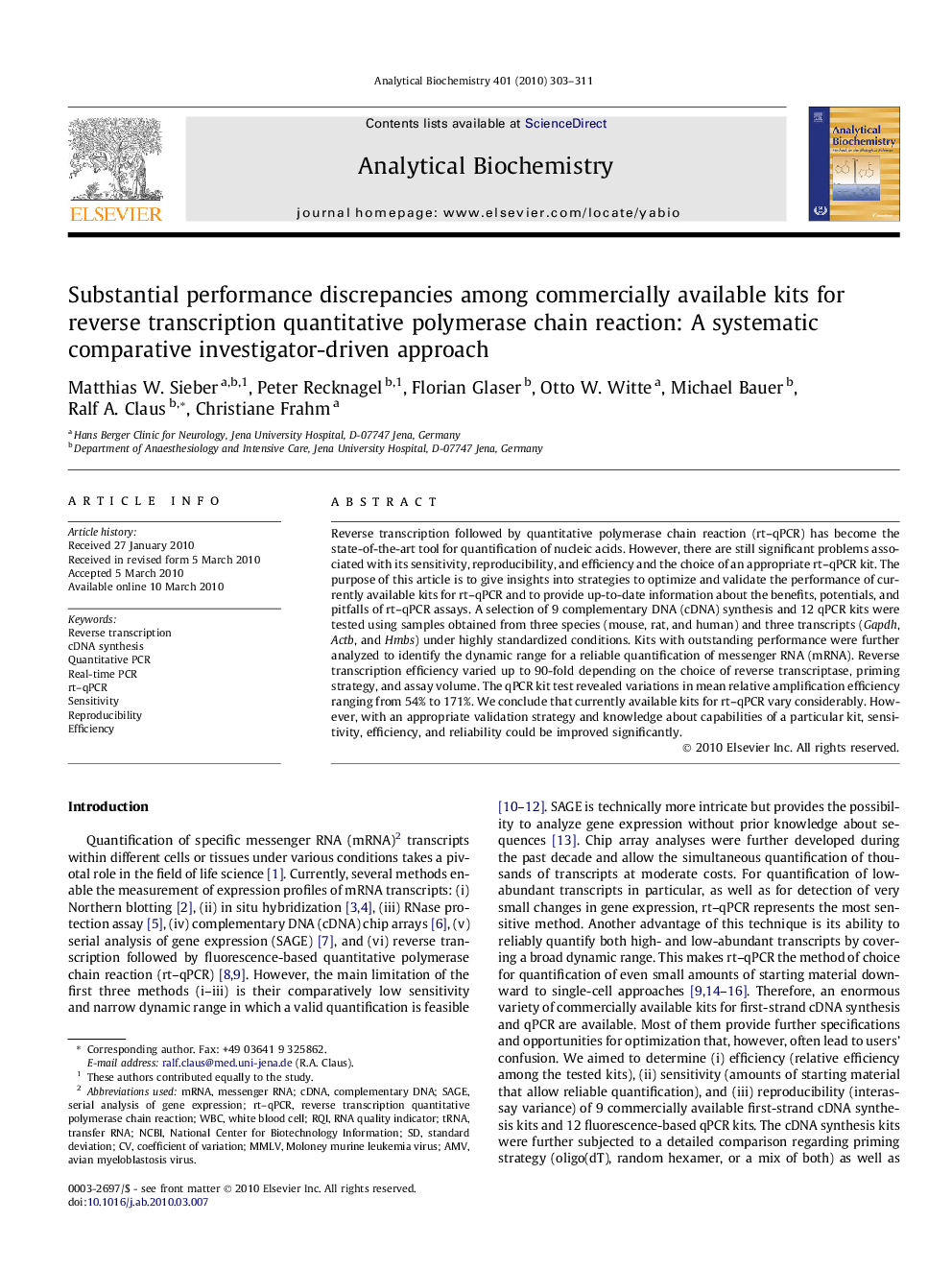| Article ID | Journal | Published Year | Pages | File Type |
|---|---|---|---|---|
| 10532775 | Analytical Biochemistry | 2010 | 9 Pages |
Abstract
Reverse transcription followed by quantitative polymerase chain reaction (rt-qPCR) has become the state-of-the-art tool for quantification of nucleic acids. However, there are still significant problems associated with its sensitivity, reproducibility, and efficiency and the choice of an appropriate rt-qPCR kit. The purpose of this article is to give insights into strategies to optimize and validate the performance of currently available kits for rt-qPCR and to provide up-to-date information about the benefits, potentials, and pitfalls of rt-qPCR assays. A selection of 9 complementary DNA (cDNA) synthesis and 12 qPCR kits were tested using samples obtained from three species (mouse, rat, and human) and three transcripts (Gapdh, Actb, and Hmbs) under highly standardized conditions. Kits with outstanding performance were further analyzed to identify the dynamic range for a reliable quantification of messenger RNA (mRNA). Reverse transcription efficiency varied up to 90-fold depending on the choice of reverse transcriptase, priming strategy, and assay volume. The qPCR kit test revealed variations in mean relative amplification efficiency ranging from 54% to 171%. We conclude that currently available kits for rt-qPCR vary considerably. However, with an appropriate validation strategy and knowledge about capabilities of a particular kit, sensitivity, efficiency, and reliability could be improved significantly.
Keywords
Related Topics
Physical Sciences and Engineering
Chemistry
Analytical Chemistry
Authors
Matthias W. Sieber, Peter Recknagel, Florian Glaser, Otto W. Witte, Michael Bauer, Ralf A. Claus, Christiane Frahm,
